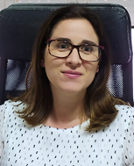Tutorial 04
Tools for Acoustic Indoor Localization Systems
Abstract
The performance of Ultrasonic Indoor Positioning Systems (UIPS) is determined by many factors; in fact, there is a wide variety of choices to be made on equipment, beacon deployment, signal configuration or positioning methods depending on the application. This tutorial analyzes these choices with the aid of a simulation software and an online demonstrator that offer analysis and testing flexibility for UIPS researchers and developers. The simulation software allows the testing of most common encoding and modulation techniques under a configurable UIPS, which also models the ultrasonic transducers’ response, beacon distribution, channel propagation effects, and allows the testing of different positioning algorithms. It is linked to an online demonstrator that can be managed remotely from a laptop/personal computer, avoiding any hardware requirement for researchers, thus enabling a fast and easy way of carrying out experimental tests in a laboratory environment, while avoiding the time-consuming tasks related to electronic design and prototyping setup in the UIPS field.
Keywords
Ultrasonic Indoor Positioning Systems (UIPS) simulator, Online UIPS demonstrator, Encoding techniques for active sensing
Tutors

Mª del Carmen Pérez received the M. S. degree in Electronics Engineering and the PhD degree from the University of Alcalá (UAH), Spain, in 2004 and 2009, respectively. She is currently an Associate Professor at the Electronics Department of the University of Alcalá. Since 2003 she has collaborated on several research projects in the areas of sequence design, low-level ultrasonic signal processing and local positioning systems.

Álvaro Hernández received the Ph.D. degree from the University of Alcalá, Spain, and Blaise Pascal University, France, in 2003. He is currently a Professor of Digital Systems and Electronic Design with the Electronics Department, University of Alcalá. His research areas are multisensor integration, electronic systems for mobile robots, and digital and embedded systems.

José M. Villadangos received the Ph.D. degree from the University of Alcala, Alcalá de Henares, Spain, in 2013. He is currently an Associate Professor of Electronic Digital Systems with the Electronics Department, University of Alcala. His current research interests include multisensor integration, electronic systems for mobile robots, digital and